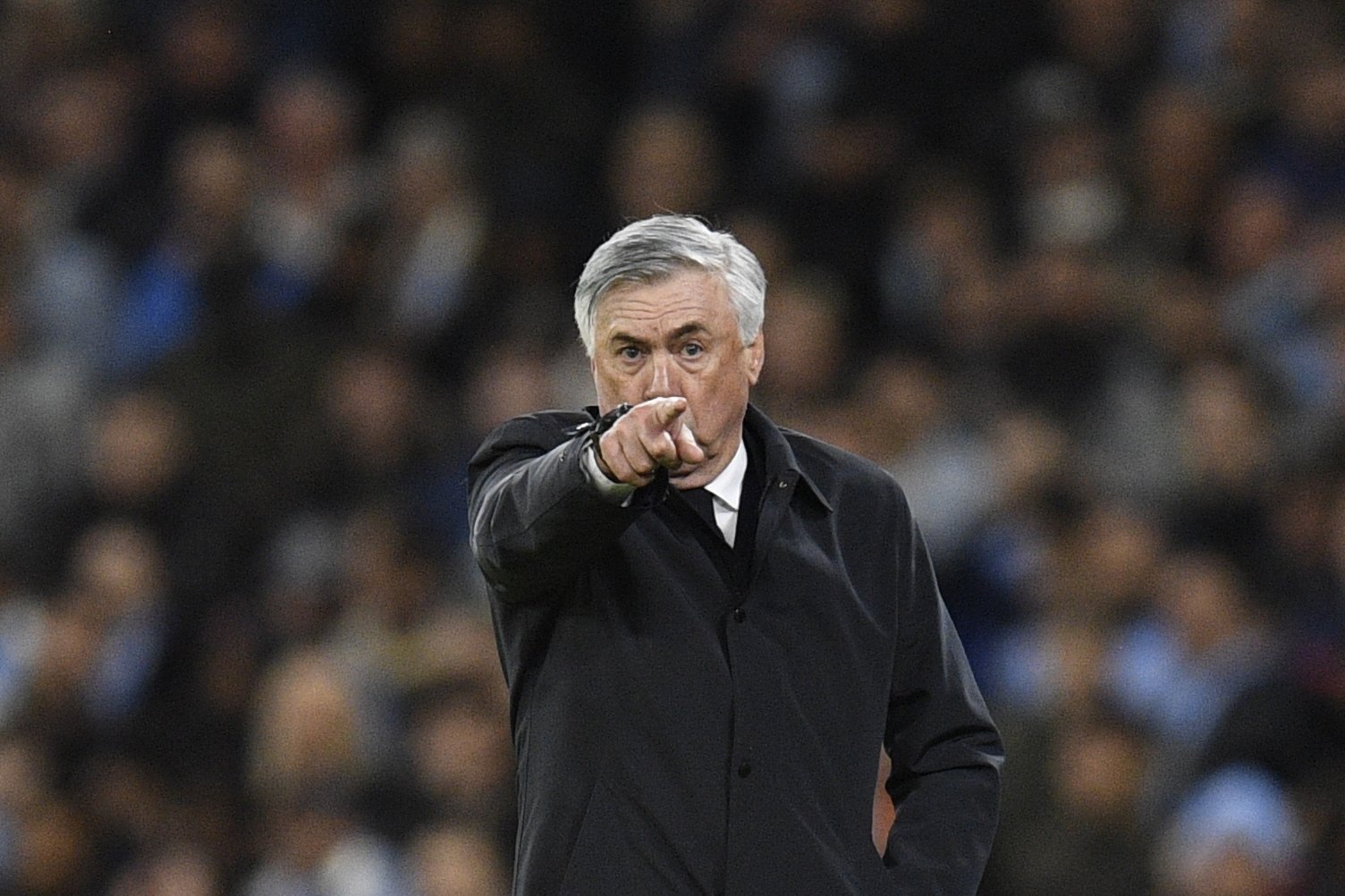© Turkuvaz Haberleşme ve Yayıncılık 2025
Real Madrid coach Carlo Ancelotti went down in football history last week as the first coach to win titles in five major European leagues after adding the La Liga title glittering list of honors.
He also won the Premier League with Chelsea, Serie A with AC Milan, Ligue 1 with Paris Saint-Germain and the Bundesliga with Bayern Munich.
And while Ancelotti's Chelsea pipped Alex Ferguson's Manchester United to the league by a single point in 2010, the others have all been won at a canter, with Real's latest success another emphatic and long-expected title win for Ancelotti to add to his CV.
Madrid's victory, and particularly the margin of victory – it sat 17 points clear of Sevilla on Saturday with four games left to play – is in part due to the fallibility of its rivals.
This was Barcelona's first season without Lionel Messi and while the shell-shocked Catalans improved after Xavi Hernandez was appointed coach in November, they remain a club in the midst of financial recovery and a team in the early stages of transition.
Atletico Madrid, meanwhile, never looked as comfortable as reigning champion as it did as a challenger.
It spent the first half of the campaign wrestling with an identity crisis that again put the spotlight on Diego Simeone and ensured its title defense was over before it began.
Sevilla was Madrid's closest rival for the majority of the season but more in terms of points than pressure. Every time an opening appeared for Julen Lopetegui's team to step forward, it blinked.

Yet Ancelotti deserves credit too, not least because the gap Real Madrid has enjoyed is a testament to its own consistency, focus and individual quality, that no other side could match. Even a better Barcelona or a more assured Atletico would have surely struggled to keep up.
One of Ancelotti's top successes this season has been the transformation of Vinicius Junior from an exciting but erratic young forward to one of the world's most clinical strikers.
Benzema, meanwhile, has hit a new, stratospheric level under Ancelotti, continuing his upward trajectory since the departure of Cristiano Ronaldo in 2018.
If the Frenchman wins the Ballon d'Or later this year, which seems entirely possible, Ancelotti might feel justified in claiming some of the credit.
Luka Modric has been outstanding again, the 36-year-old Croatian the most resounding riposte to early concerns about Ancelotti's lack of rotation
And the Italian shored up the defense with little fuss. The departures of Sergio Ramos and Raphael Varane broke up a long-established partnership but the performances of Eder Militao and David Alaba have ensured neither have been missed.
Most of all, though, Ancelotti has done what the club hired him to do: He stabilized a team that might easily have been reeling from the losses of an iconic captain in Ramos and a historic coach in Zinedine Zidane. He has maintained order and calm while settling promising youngsters and sustaining seasoned veterans.
When Florentino Perez agreed to bring Ancelotti back for a second spell last year, many wondered if the appointment was overly-cautious, a backward step among the cluster of super clubs with younger and more progressive coaches at the helm.
But Ancelotti's gratitude for a return to a level he thought no longer possible in the twilight years of his career has reverberated at Real Madrid, his carefree attitude creating a sense of a club protected from pressure and unaffected by outside noise.
"The president called me when nobody expected it. I'm happy here, and we're going to continue to take the club forward," said Ancelotti.
Eden Hazard and Gareth Bale were relegated to the sidelines with respect and without retribution.
A 4-0 defeat by Barcelona at home, for which Ancelotti was at least partially responsible, could have undermined everything but instead, it became a blip, the team responding and Ancelotti recovering. "We didn't lose our heads," he said.
Whether Ancelotti is the coach for the future remains to be seen. Xavi's Barca is likely to offer a much sterner challenge next season while in the Champions League, against the very best opponents, there is evidence to suggest Madrid needs a more modern approach.
The fact it has been so far ahead in Spain while also a little behind in Europe brings its own questions about the current state of Spanish football, financial advantage and the ongoing pursuit of a European Super League.
In La Liga, Real Madrid was unquestionably superior.
